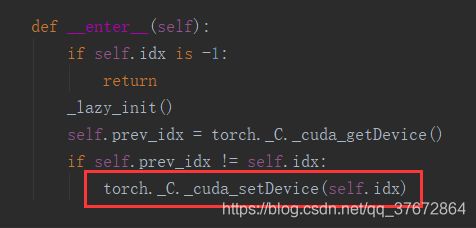- Android 开源组件和第三方库汇总
gyyzzr
AndroidAndroid开源框架
转载1、github排名https://github.com/trending,github搜索:https://github.com/search2、https://github.com/wasabeef/awesome-android-ui目录UIUI卫星菜单节选器下拉刷新模糊效果HUD与Toast进度条UI其它动画网络相关响应式编程地图数据库图像浏览及处理视频音频处理测试及调试动态更新热更新
- Kafka系列之:Dead Letter Queue死信队列DLQ
快乐骑行^_^
KafkaKafka系列DeadLetterQueue死信队列DLQ
Kafka系列之:DeadLetterQueue死信队列DLQ一、死信队列二、参数errors.tolerance三、创建死信队列主题四、在启用安全性的情况下使用死信队列更多内容请阅读博主这篇博客:Kafka系列之:KafkaConnect深入探讨-错误处理和死信队列一、死信队列死信队列(DLQ)仅适用于接收器连接器。当一条记录以JSON格式到达接收器连接器时,但接收器连接器配置期望另一种格式,如
- rocketmq的重试队列和死信队列
还不够
MQ
原文:https://www.jianshu.com/p/1281f7fee69c消费端,一直不回传消费的结果。rocketmq认为消息没收到,consumer下一次拉取,broker依然会发送该消息。所以,任何异常都要捕获返回ConsumeConcurrentlyStatus.RECONSUME_LATERrocketmq会放到重试队列。这个重试TOPIC的名字是%RETRY%+consumer
- Excel控件Spire.XLS 更新至7.12.144 | 附下载
cocacola456
文档管理更新Excel控件Spire.XLS更新Spire.XLSSpire.XLS下载
Excel控件Spire.XLS更新至7.12.144,修复了转换PDF时字幕对齐的问题。Spire.XLS7.12.144更新修复修复了将Chart转换为Image时图表数据标签重复的问题。修复了CalculateAllValue方法抛出异常的问题。修复了将工作表转换为PDF时图表字幕对齐不正确的问题。
- pythonjson中list操作_Python json.dumps 特殊数据类型的自定义序列化操作
场景描述:Python标准库中的json模块,集成了将数据序列化处理的功能;在使用json.dumps()方法序列化数据时候,如果目标数据中存在datetime数据类型,执行操作时,会抛出异常:TypeError:datetime.datetime(2016,12,10,11,04,21)isnotJSONserializable那么遇到json.dumps序列化不支持的数据类型,该怎么办!首先,
- 深入了解 Vim 编辑器:从入门到精通
誰能久伴不乏
编辑器vimlinux
文章目录深入了解Vim编辑器:从入门到精通一、Vim的三个基本模式1.普通模式(NormalMode)2.插入模式(InsertMode)3.命令模式(CommandMode)二、常用快捷键光标移动删除操作复制和粘贴撤销和重做三、文件操作与搜索文件操作搜索文本替换文本四、Vim的进阶功能多文件编辑分屏功能标签页查看帮助五、总结深入了解Vim编辑器:从入门到精通Vim是一个强大的文本编辑器,广泛应用
- android中百度定位、城市选择列表,右侧字母展示
好久好久没光顾过自己空空的博客了,做项目的时候都是逛着别人的博客急着把功能实现,近来闲下来了总结总结。这个城市选择功能也是当时做项目急着实现从哪找来的框架不记得了,然后改改用到项目中来的。非常感谢提供最初源码的博主,主要的区别是添加了搜索功能、定位功能,把以前的操作本地数据库sqlite的部分,改为操作对assest文件的操作,封装的有百度地图定位方法、可删除的edittext。百度地图的key需
- 为Layui Table组件添加前端搜索功能
caifox菜狐狸
JavaScript学习之旅:从新手到专家前端layuijavascripttable前端搜索表格搜索前端框架
在现代Web开发中,数据展示和交互功能是构建高效、用户友好界面的关键要素之一。Layui作为一款广受欢迎的前端UI框架,以其简洁的代码、丰富的组件和强大的功能,为开发者提供了极大的便利。其中,Layui的Table组件更是以其强大的数据展示能力和灵活的配置选项,成为了许多项目中不可或缺的部分。然而,在实际应用中,仅仅展示数据往往是不够的。用户通常需要根据自己的需求快速查找特定信息,这就需要为表格添
- 提升企业级数据处理效率!TDengine 四个集群优化点详解
TDengine (老段)
TDengine运维大数据数据库物联网时序数据库服务器运维tdengine
为了帮助企业更好地进行大数据处理,我们在此前TDengine3.x系列版本中进行了几项与集群相关的优化和新功能开发,以提升集群的稳定性和在异常情况下的恢复能力。这些优化包括clusterID隔离、leaderrebalance、raftlearner和restorednode。本文将对这几项重要优化进行详细阐述,以解答企业在此领域的疑问,并帮助大家更好地应对相关挑战。clusterID隔离问题fi
- C++STL-set
s15335
C++STLc++开发语言
一.基础概念set也是一种容器,像vector,string这样,但它是树形容器。在物理结构上是二叉搜索树,逻辑上还是线性结构。set容器内元素不可重复,multiset内容器元素可以重复;这两个容器,插入的元素都是有序排列。二.基础用法1.set对象创建1.默认构造函数sets1;2.初始化列表sets2_1={9,8,7,6,5};//56789sets2_2({9,8,7,7,6,5});/
- 学习日记-spring-day45-7.10
永日45670
学习springjava
知识点:1.初始化Bean单例池完成getBeancreateBean(1)知识点核心内容重点单例词初始化在容器初始化阶段预先创建单例对象,避免在getBean时动态创建单例词必须在容器初始化时完成加载,否则会触发异常getBean方法逻辑1.从beanDefinitionMap查询BeanDefinition2.根据scope判断单例/多例3.单例:直接从单例词获取4.多例:反射动态创建新对象多
- 深度学习篇---昇腾NPU&CANN 工具包
Atticus-Orion
上位机知识篇图像处理篇深度学习篇深度学习人工智能NPU昇腾CANN
介绍昇腾NPU是华为推出的神经网络处理器,具有强大的AI计算能力,而CANN工具包则是面向AI场景的异构计算架构,用于发挥昇腾NPU的性能优势。以下是详细介绍:昇腾NPU架构设计:采用达芬奇架构,是一个片上系统,主要由特制的计算单元、大容量的存储单元和相应的控制单元组成。集成了多个CPU核心,包括控制CPU和AICPU,前者用于控制处理器整体运行,后者承担非矩阵类复杂计算。此外,还拥有AICore
- 400多个免费在线编程与计算机科学课程
zhufafa
基础理论课程理论计算机基础免费
来源:medium作者:DhawalShah五年前,麻省理工学院和斯坦福大学等学校首先向公众开放免费的在线课程。如今,全球有700多所学校创造了数以千计的免费在线课程。从入门到精通系列,是作者通过ClassCentral的课程数据库整理的400多个免费在线课程的简介和链接(来源于ClassCentral,一个在线课程搜索引擎),根据课程难度分为入门、进阶和高阶三大类,每门课程还有星级评分(统计自C
- 深度学习图像分类数据集—桃子识别分类
AI街潜水的八角
深度学习图像数据集深度学习分类人工智能
该数据集为图像分类数据集,适用于ResNet、VGG等卷积神经网络,SENet、CBAM等注意力机制相关算法,VisionTransformer等Transformer相关算法。数据集信息介绍:桃子识别分类:['B1','M2','R0','S3']训练数据集总共有6637张图片,每个文件夹单独放一种数据各子文件夹图片统计:·B1:1601张图片·M2:1800张图片·R0:1601张图片·S3:
- 使用 DeepSeek R1 和 Ollama 开发 RAG 系统 使用 DeepSeek R1 和 Ollama 构建强大的 RAG 系统。了解开发智能 AI 解决方案的设置过程、最佳实践和技巧。
知识大胖
NVIDIAGPU和大语言模型开发教程人工智能deepseekollama
简介DeepSeekR1和Ollama提供了用于构建检索增强生成(RAG)系统的强大工具。本指南介绍了使用这些技术开发RAG应用程序的设置、实施和最佳实践。为什么RAG系统会改变游戏规则检索增强生成(RAG)系统结合了搜索和生成AI的优点,可实现精确且准确的情境感知响应。借助DeepSeekR1和Ollama等工具,创建RAG系统不再令人生畏。无论您是构建聊天机器人、知识助手还是AI驱动的搜索引擎
- 卫星分析系列之 使用卫星图像量化野火烧毁面积 在 Google Colab 中使用 Python 使用 Sentinel-2 图像确定森林火灾烧毁面积
知识大胖
NVIDIAGPU和大语言模型开发教程pythonsentinel开发语言
简介几年前,当大多数气候模型预测如果我们不采取必要措施,洪水、热浪和野火将会发生更多时,我没想到这些不寻常的灾难现象会成为常见事件。其中,野火每年摧毁大量森林面积。如果你搜索不同地方的重大野火表格,你会发现令人震惊的统计数据,显示由于野火,地球上有多少森林面积正在消失。在本教程中,我将结合我已经发表过的关于下载、处理卫星图像和可视化野火的故事,量化加州发生的其中一场重大野火的烧毁面积。与之前的帖子
- 使用NVIDIA NeRF将2D图像转换为逼真的3D模型(Python)
ByteWhiz
3dpython计算机视觉Python
使用NVIDIANeRF将2D图像转换为逼真的3D模型(Python)NeuralRadianceFields(NeRF)是一种强大的方法,可以将2D图像转换为逼真的3D模型。它使用神经网络来建模场景的辐射场,并通过渲染多个视角的图像来重建3D模型。在本文中,我们将使用Python和NVIDIANeRF库来实现这一过程。首先,我们需要安装所需的库。我们可以通过以下命令使用pip安装NVIDIANe
- CS144 lab2 tcp_receiver
1.实验目的lab2的目的是实现tcp的接收端。主要包括两方面(1)从发送端接收消息,使用Reassembler聚合字节流(Bytestream)(2)将确认号(ackno)和windowsize发回对端确认号,也就是first_unassemblerbyte;而Bytestream可写入的大小,也就是windowsize!ackno和windowsize两个共同描述了发送方能发送的数据范围。有时
- 为什么你的服务器总被攻击?运维老兵的深度分析
作为运维人员,最头疼的莫过于服务器在毫无征兆的情况下变得异常缓慢、服务中断,甚至数据泄露。事后查看日志,常常发现一些“莫名其妙”的攻击痕迹。为什么服务器会成为攻击者的目标?这些攻击又是如何悄无声息发生的?今天,我们就从实战角度分析几种常见且容易被忽视的攻击模式,并教你如何通过日志分析初步定位问题。一、服务器被攻击的常见“莫名其妙”原因“扫楼式”探测与弱口令爆破:现象:服务器CPU、内存无明显异常,
- Python入门--day04--Python 推导式、常见语句和内置函数总结
the time zips by
#Python基础python开发语言
文章目录前言一、推导式1.列表推导式2.集合推导式3.字典推导式4.生成器推导式二、常见语句1赋值语句2.控制语句2.1条件语句2.1.1if-elif-else2.1.2match-case2.2循环语句2.2.1for循环2.2.2while循环2.3循环控制语句2.3.1break2.3.2continue2.3.3pass3.range语句3.函数定义语句4.异常处理语句4.1try-ex
- 家庭网络中的服务器怎么对外提供服务?
行而不知
服务器运维内网穿透DDNS
家庭网络中的服务器怎么对外提供服务?方案1DDNS(家庭网络需要有公网ip)方案2内网穿透(需要有一台公网ip的服务器)方案1DDNS(家庭网络需要有公网ip) 怎么判断是否有公网ip?大致的流程就是光猫改桥接,由光猫拨号改为路由器拨号,在路由器管理页面查看拨号获取的ip,用这个ip去ip查询网站验证,具体的操作可自行搜索,这里不进行赘述了。 我们都知道,ip有两种,ipv4和ipv6 网络
- AWS 管理秘籍(一)
绝不原创的飞龙
默认分类默认分类
原文:annas-archive.org/md5/cf1c4e1db999839ba88fc56df4011156译者:飞龙协议:CCBY-NC-SA4.0序言AWS平台的增长速度非常快,正在被各行各业广泛采用。正如俗话所说,朋友不会让朋友建立数据中心。不管从哪个角度看,按需计算、网络和存储的模式将持续存在。尤其是当你看到AWS平台在功能和增强方面的更新速度时,很难再去反对站在巨人的肩膀上,尤其是
- 2023高薪前端面试题(二、前端核心——Ajax)
原生AjaxAjax简介Ajax全程为AsynchronousJavaScript+XML,就是异步的JS和XML通过AJAX可以在浏览器中向服务器发送异步请求,最大的优势是:无刷新获取数据,实现局部刷新Ajax是一种用于创建快速动态网页的技术AJAX不是新的编程语言,而是一种将现有的标准组合在一起使用的新方式Ajax的应用场景页面上拉加载更多数据列表数据无刷新分页表单项离开焦点数据验证搜索框提示
- 5G RAN接入场景的IMS语音业务开通全流程
码农老gou
5G5G网络
1.UE注册请求声明语音能力UE→AMF:发送RegistrationRequestNAS消息,关键参数:-UE'susagesetting="VoiceCentric"//终端以语音业务为核心-RequestedNSSAI:包含IMS切片标识(S-NSSAI)技术意义:通知网络优先保障语音业务资源(如QoS、移动性管理)。触发AMF按语音终端策略处理注册流程。规范依据:TS24.501§5.5.
- 前端面试题——手写实现 ajax
阿水爱踢中锋
ajaxjs前端
凡是和后台有过数据交互的小伙伴肯定都接触过ajax.我们可以通过ajax来实现页面的无刷新请求数据,这样就能在保证良好用户体验的同时,将更多的内容展示给用户ajax在我们的开发工作中已经司空见惯,几乎所有我们频繁使用的库和框架都提供了经过完善封装后的ajax方法,如jQuery、zepto、angular等等,这使得我们的数据请求变得异常简洁明了但是这也带来了很明显的缺陷,就是我们知道如何去使用封
- Elasticsearch搜索引擎存储:从原理到实践的全景解析
Python×CATIA工业智造
搜索引擎elasticsearch大数据
引言在大数据时代,数据规模呈指数级增长,传统数据库的模糊查询、实时分析能力逐渐成为瓶颈。Elasticsearch(简称ES)凭借其分布式架构、实时搜索和灵活的数据分析能力,成为企业级搜索与存储的核心引擎。截至2025年,ES在全球日志分析、电商搜索、实时监控等场景的市场占有率超过60%。本文将从存储架构、核心技术、应用场景及优化策略四个维度,深入解析Elasticsearch的设计哲学与实践价值
- Java异常处理
吴鹰飞侠
java开发语言
Java异常处理是编程中的重要一环,它能让程序在遇到错误时不中断,而是优雅地处理异常,继续执行或给出合理的反馈。掌握异常处理是编写健壮程序的基础。异常是指程序运行过程中发生的错误情况,通常会导致程序的中断。Java中的异常分为两类:1.编译时异常(CheckedException):必须显式处理(如IOException、SQLException等)。2.运行时异常(UncheckedExcept
- AWS Terraform 架构指南(二)
绝不原创的飞龙
默认分类默认分类
原文:annas-archive.org/md5/8b2d222956a050c7632b9eee086dadcf译者:飞龙协议:CCBY-NC-SA4.0第七章:7在项目中实现Terraform您准备好开始使用Terraform开发您的AWS基础设施了吗?在本章中,您将学习Terraform的基础知识,并了解如何在AWS中部署您的第一个模板。我们将介绍选择合适的AWS提供商和选择满足您项目需求的
- Elasticsearch混合搜索深度解析(下):执行机制与完整流程
GeminiJM
ES学习笔记elasticsearchjenkins大数据
引言在上篇中,我们发现了KNN结果通过SubSearch机制被保留的关键事实。本篇将继续深入分析混合搜索的执行机制,揭示完整的处理流程,并解答之前的所有疑惑。深入源码分析1.SubSearch的执行机制1.1KnnScoreDocQueryBuilder的实现KNN结果被转换为KnnScoreDocQueryBuilder,这个类负责在查询阶段重新执行KNN搜索://server/src/main
- LeetCode第317题_离建筑物最近的距离
@蓝莓果粒茶
算法leetcodelinux算法c#学习pythonc++
LeetCode第317题:离建筑物最近的距离文章摘要本文详细解析LeetCode第317题"离建筑物最近的距离",这是一道图论和广度优先搜索的问题。文章提供了基于多源BFS的解法,包含C#、Python、C++三种语言实现,配有详细的算法分析和性能对比。适合想要提升图论算法能力的程序员。核心知识点:广度优先搜索、图论、矩阵遍历难度等级:困难推荐人群:具有图论基础,想要提升算法能力的程序员题目描述
- Js函数返回值
_wy_
jsreturn
一、返回控制与函数结果,语法为:return 表达式;作用: 结束函数执行,返回调用函数,而且把表达式的值作为函数的结果 二、返回控制语法为:return;作用: 结束函数执行,返回调用函数,而且把undefined作为函数的结果 在大多数情况下,为事件处理函数返回false,可以防止默认的事件行为.例如,默认情况下点击一个<a>元素,页面会跳转到该元素href属性
- MySQL 的 char 与 varchar
bylijinnan
mysql
今天发现,create table 时,MySQL 4.1有时会把 char 自动转换成 varchar
测试举例:
CREATE TABLE `varcharLessThan4` (
`lastName` varchar(3)
) ;
mysql> desc varcharLessThan4;
+----------+---------+------+-
- Quartz——TriggerListener和JobListener
eksliang
TriggerListenerJobListenerquartz
转载请出自出处:http://eksliang.iteye.com/blog/2208624 一.概述
listener是一个监听器对象,用于监听scheduler中发生的事件,然后执行相应的操作;你可能已经猜到了,TriggerListeners接受与trigger相关的事件,JobListeners接受与jobs相关的事件。
二.JobListener监听器
j
- oracle层次查询
18289753290
oracle;层次查询;树查询
.oracle层次查询(connect by)
oracle的emp表中包含了一列mgr指出谁是雇员的经理,由于经理也是雇员,所以经理的信息也存储在emp表中。这样emp表就是一个自引用表,表中的mgr列是一个自引用列,它指向emp表中的empno列,mgr表示一个员工的管理者,
select empno,mgr,ename,sal from e
- 通过反射把map中的属性赋值到实体类bean对象中
酷的飞上天空
javaee泛型类型转换
使用过struts2后感觉最方便的就是这个框架能自动把表单的参数赋值到action里面的对象中
但现在主要使用Spring框架的MVC,虽然也有@ModelAttribute可以使用但是明显感觉不方便。
好吧,那就自己再造一个轮子吧。
原理都知道,就是利用反射进行字段的赋值,下面贴代码
主要类如下:
import java.lang.reflect.Field;
imp
- SAP HANA数据存储:传统硬盘的瓶颈问题
蓝儿唯美
HANA
SAPHANA平台有各种各样的应用场景,这也意味着客户的实施方法有许多种选择,关键是如何挑选最适合他们需求的实施方案。
在 《Implementing SAP HANA》这本书中,介绍了SAP平台在现实场景中的运作原理,并给出了实施建议和成功案例供参考。本系列文章节选自《Implementing SAP HANA》,介绍了行存储和列存储的各自特点,以及SAP HANA的数据存储方式如何提升空间压
- Java Socket 多线程实现文件传输
随便小屋
javasocket
高级操作系统作业,让用Socket实现文件传输,有些代码也是在网上找的,写的不好,如果大家能用就用上。
客户端类:
package edu.logic.client;
import java.io.BufferedInputStream;
import java.io.Buffered
- java初学者路径
aijuans
java
学习Java有没有什么捷径?要想学好Java,首先要知道Java的大致分类。自从Sun推出Java以来,就力图使之无所不包,所以Java发展到现在,按应用来分主要分为三大块:J2SE,J2ME和J2EE,这也就是Sun ONE(Open Net Environment)体系。J2SE就是Java2的标准版,主要用于桌面应用软件的编程;J2ME主要应用于嵌入是系统开发,如手机和PDA的编程;J2EE
- APP推广
aoyouzi
APP推广
一,免费篇
1,APP推荐类网站自主推荐
最美应用、酷安网、DEMO8、木蚂蚁发现频道等,如果产品独特新颖,还能获取最美应用的评测推荐。PS:推荐简单。只要产品有趣好玩,用户会自主分享传播。例如足迹APP在最美应用推荐一次,几天用户暴增将服务器击垮。
2,各大应用商店首发合作
老实盯着排期,多给应用市场官方负责人献殷勤。
3,论坛贴吧推广
百度知道,百度贴吧,猫扑论坛,天涯社区,豆瓣(
- JSP转发与重定向
百合不是茶
jspservletJava Webjsp转发
在servlet和jsp中我们经常需要请求,这时就需要用到转发和重定向;
转发包括;forward和include
例子;forwrad转发; 将请求装法给reg.html页面
关键代码;
req.getRequestDispatcher("reg.html
- web.xml之jsp-config
bijian1013
javaweb.xmlservletjsp-config
1.作用:主要用于设定JSP页面的相关配置。
2.常见定义:
<jsp-config>
<taglib>
<taglib-uri>URI(定义TLD文件的URI,JSP页面的tablib命令可以经由此URI获取到TLD文件)</tablib-uri>
<taglib-location>
TLD文件所在的位置
- JSF2.2 ViewScoped Using CDI
sunjing
CDIJSF 2.2ViewScoped
JSF 2.0 introduced annotation @ViewScoped; A bean annotated with this scope maintained its state as long as the user stays on the same view(reloads or navigation - no intervening views). One problem w
- 【分布式数据一致性二】Zookeeper数据读写一致性
bit1129
zookeeper
很多文档说Zookeeper是强一致性保证,事实不然。关于一致性模型请参考http://bit1129.iteye.com/blog/2155336
Zookeeper的数据同步协议
Zookeeper采用称为Quorum Based Protocol的数据同步协议。假如Zookeeper集群有N台Zookeeper服务器(N通常取奇数,3台能够满足数据可靠性同时
- Java开发笔记
白糖_
java开发
1、Map<key,value>的remove方法只能识别相同类型的key值
Map<Integer,String> map = new HashMap<Integer,String>();
map.put(1,"a");
map.put(2,"b");
map.put(3,"c"
- 图片黑色阴影
bozch
图片
.event{ padding:0; width:460px; min-width: 460px; border:0px solid #e4e4e4; height: 350px; min-heig
- 编程之美-饮料供货-动态规划
bylijinnan
动态规划
import java.util.Arrays;
import java.util.Random;
public class BeverageSupply {
/**
* 编程之美 饮料供货
* 设Opt(V’,i)表示从i到n-1种饮料中,总容量为V’的方案中,满意度之和的最大值。
* 那么递归式就应该是:Opt(V’,i)=max{ k * Hi+Op
- ajax大参数(大数据)提交性能分析
chenbowen00
WebAjax框架浏览器prototype
近期在项目中发现如下一个问题
项目中有个提交现场事件的功能,该功能主要是在web客户端保存现场数据(主要有截屏,终端日志等信息)然后提交到服务器上方便我们分析定位问题。客户在使用该功能的过程中反应点击提交后反应很慢,大概要等10到20秒的时间浏览器才能操作,期间页面不响应事件。
根据客户描述分析了下的代码流程,很简单,主要通过OCX控件截屏,在将前端的日志等文件使用OCX控件打包,在将之转换为
- [宇宙与天文]在太空采矿,在太空建造
comsci
我们在太空进行工业活动...但是不太可能把太空工业产品又运回到地面上进行加工,而一般是在哪里开采,就在哪里加工,太空的微重力环境,可能会使我们的工业产品的制造尺度非常巨大....
地球上制造的最大工业机器是超级油轮和航空母舰,再大些就会遇到困难了,但是在空间船坞中,制造的最大工业机器,可能就没
- ORACLE中CONSTRAINT的四对属性
daizj
oracleCONSTRAINT
ORACLE中CONSTRAINT的四对属性
summary:在data migrate时,某些表的约束总是困扰着我们,让我们的migratet举步维艰,如何利用约束本身的属性来处理这些问题呢?本文详细介绍了约束的四对属性: Deferrable/not deferrable, Deferred/immediate, enalbe/disable, validate/novalidate,以及如
- Gradle入门教程
dengkane
gradle
一、寻找gradle的历程
一开始的时候,我们只有一个工程,所有要用到的jar包都放到工程目录下面,时间长了,工程越来越大,使用到的jar包也越来越多,难以理解jar之间的依赖关系。再后来我们把旧的工程拆分到不同的工程里,靠ide来管理工程之间的依赖关系,各工程下的jar包依赖是杂乱的。一段时间后,我们发现用ide来管理项程很不方便,比如不方便脱离ide自动构建,于是我们写自己的ant脚本。再后
- C语言简单循环示例
dcj3sjt126com
c
# include <stdio.h>
int main(void)
{
int i;
int count = 0;
int sum = 0;
float avg;
for (i=1; i<=100; i++)
{
if (i%2==0)
{
count++;
sum += i;
}
}
avg
- presentModalViewController 的动画效果
dcj3sjt126com
controller
系统自带(四种效果):
presentModalViewController模态的动画效果设置:
[cpp]
view plain
copy
UIViewController *detailViewController = [[UIViewController al
- java 二分查找
shuizhaosi888
二分查找java二分查找
需求:在排好顺序的一串数字中,找到数字T
一般解法:从左到右扫描数据,其运行花费线性时间O(N)。然而这个算法并没有用到该表已经排序的事实。
/**
*
* @param array
* 顺序数组
* @param t
* 要查找对象
* @return
*/
public stati
- Spring Security(07)——缓存UserDetails
234390216
ehcache缓存Spring Security
Spring Security提供了一个实现了可以缓存UserDetails的UserDetailsService实现类,CachingUserDetailsService。该类的构造接收一个用于真正加载UserDetails的UserDetailsService实现类。当需要加载UserDetails时,其首先会从缓存中获取,如果缓存中没
- Dozer 深层次复制
jayluns
VOmavenpo
最近在做项目上遇到了一些小问题,因为架构在做设计的时候web前段展示用到了vo层,而在后台进行与数据库层操作的时候用到的是Po层。这样在业务层返回vo到控制层,每一次都需要从po-->转化到vo层,用到BeanUtils.copyProperties(source, target)只能复制简单的属性,因为实体类都配置了hibernate那些关联关系,所以它满足不了现在的需求,但后发现还有个很
- CSS规范整理(摘自懒人图库)
a409435341
htmlUIcss浏览器
刚没事闲着在网上瞎逛,找了一篇CSS规范整理,粗略看了一下后还蛮有一定的道理,并自问是否有这样的规范,这也是初入前端开发的人一个很好的规范吧。
一、文件规范
1、文件均归档至约定的目录中。
具体要求通过豆瓣的CSS规范进行讲解:
所有的CSS分为两大类:通用类和业务类。通用的CSS文件,放在如下目录中:
基本样式库 /css/core
- C++动态链接库创建与使用
你不认识的休道人
C++dll
一、创建动态链接库
1.新建工程test中选择”MFC [dll]”dll类型选择第二项"Regular DLL With MFC shared linked",完成
2.在test.h中添加
extern “C” 返回类型 _declspec(dllexport)函数名(参数列表);
3.在test.cpp中最后写
extern “C” 返回类型 _decls
- Android代码混淆之ProGuard
rensanning
ProGuard
Android应用的Java代码,通过反编译apk文件(dex2jar、apktool)很容易得到源代码,所以在release版本的apk中一定要混淆一下一些关键的Java源码。
ProGuard是一个开源的Java代码混淆器(obfuscation)。ADT r8开始它被默认集成到了Android SDK中。
官网:
http://proguard.sourceforge.net/
- 程序员在编程中遇到的奇葩弱智问题
tomcat_oracle
jquery编程ide
现在收集一下:
排名不分先后,按照发言顺序来的。
1、Jquery插件一个通用函数一直报错,尤其是很明显是存在的函数,很有可能就是你没有引入jquery。。。或者版本不对
2、调试半天没变化:不在同一个文件中调试。这个很可怕,我们很多时候会备份好几个项目,改完发现改错了。有个群友说的好: 在汤匙
- 解决maven-dependency-plugin (goals "copy-dependencies","unpack") is not supported
xp9802
dependency
解决办法:在plugins之前添加如下pluginManagement,二者前后顺序如下:
[html]
view plain
copy
<build>
<pluginManagement
